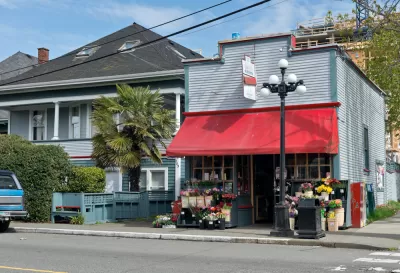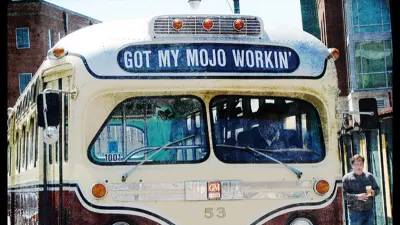A call for zoning reforms that legalize commercial buildings in residential neighborhoods in Seattle—a building type and land use that has fallen out of favor all over the United States.

Sam Kraft, principal of D3 Architects and instructor of architecture at the University of Washington, writes a guest article for The Seattle Times that begins by singing the praises of two building types that are no longer legal in Seattle (like in most cities in the United States): fourplexes and corner stores.
A few corner stores predate the 1923 zoning code written by Harland Bartholomew that implemented a widespread preference for single-family detached housing:
There are a small handful of stores and cafes like Boulevard Grocery (now called Seven Coffee Roasters Market & Cafe) speckled throughout the city’s residential neighborhoods. They have all been in continued operation since at least 1922, weathering the depression, WWII and the Vietnam War, the oil embargo, the Great Recession and now online commerce. Why have they been able to maintain business for 100 years? Because they are beloved local places that connect us — to Seattle’s past; to each other; to the food, drink, art, culture and life of a specific neighborhood. They create more activity on the sidewalk, reducing crime and cars and increasing walking, biking, skipping, scootering and maybe even laughing.
Kraft's appeal is simple: "Let's allow corner stores back into our neighborhoods." The article includes a call to action to appeal to local elected officials with the power to change the city's land use code. An architect in Portland, Oregon made a similar case in 2020, calling for "Accessory Commercial Units," which could be retrofitted for some of the same benefits described by Kraft here.
FULL STORY: Bring back corner stores to create a connected, equitable city

Alabama: Trump Terminates Settlements for Black Communities Harmed By Raw Sewage
Trump deemed the landmark civil rights agreement “illegal DEI and environmental justice policy.”

Study: Maui’s Plan to Convert Vacation Rentals to Long-Term Housing Could Cause Nearly $1 Billion Economic Loss
The plan would reduce visitor accommodation by 25% resulting in 1,900 jobs lost.

Why Should We Subsidize Public Transportation?
Many public transit agencies face financial stress due to rising costs, declining fare revenue, and declining subsidies. Transit advocates must provide a strong business case for increasing public transit funding.

Wind Energy on the Rise Despite Federal Policy Reversal
The Trump administration is revoking federal support for renewable energy, but demand for new projects continues unabated.

Passengers Flock to Caltrain After Electrification
The new electric trains are running faster and more reliably, leading to strong ridership growth on the Bay Area rail system.

Texas Churches Rally Behind ‘Yes in God’s Back Yard’ Legislation
Religious leaders want the state to reduce zoning regulations to streamline leasing church-owned land to housing developers.
Urban Design for Planners 1: Software Tools
This six-course series explores essential urban design concepts using open source software and equips planners with the tools they need to participate fully in the urban design process.
Planning for Universal Design
Learn the tools for implementing Universal Design in planning regulations.
Caltrans
Smith Gee Studio
Institute for Housing and Urban Development Studies (IHS)
City of Grandview
Harvard GSD Executive Education
Toledo-Lucas County Plan Commissions
Salt Lake City
NYU Wagner Graduate School of Public Service





























